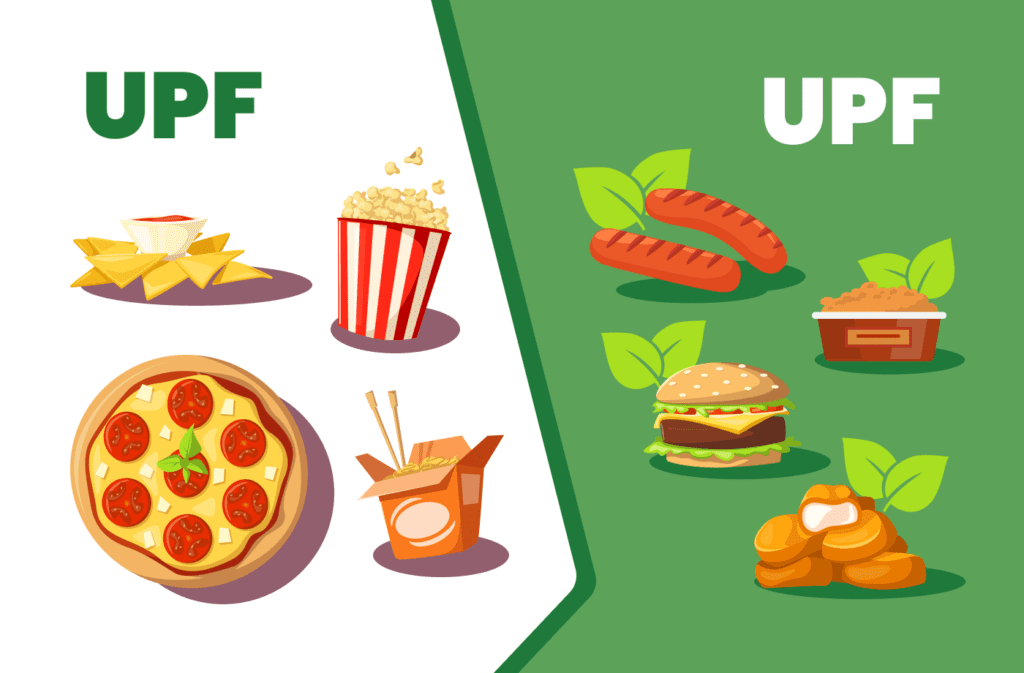Ultra-Processed
Foods (UPFs):
Plant-based =
unhealthy?
The NOVA system on the test bench.
The Debate Around Ultra-Processed Foods (UPFs) Is Gaining Momentum. Classification systems like NOVA categorize many plant-based products as ``ultra-processed`` – regardless of their nutrient profile or health benefits. But is this perspective still relevant today?
Our white paper puts plant-based alternatives into the context of the NOVA system and offers a well-founded analysis of the role UPFs play in modern nutrition. It places a special focus on plant-based alternatives and discusses how they are classified within the NOVA framework.
Our white paper puts plant-based alternatives into the context of the NOVA system and offers a well-founded analysis of the role UPFs play in modern nutrition. It places a special focus on plant-based alternatives and discusses how they are classified within the NOVA framework.

„The discussion around UPFs is a major opportunity for plant-based nutrition – if we approach it with nuance.“
Rebecca Bohlmann,
Product Manager, Planteneers

Did you know?
According to the NOVA system, even an organic soy drink fortified with vitamin B12 and calcium is classified as an ``ultra-processed food`` – despite being made with only water, soybeans, calcium, and vitamin B12.
What to Expect in the White Paper:
A Critical Look at the NOVA System:
Why the current classification falls short—and what alternatives could make sense.
Focus on Health Implications:
Which UPFs actually pose a risk – and why plant-based alternatives deserve a more nuanced evaluation.
Consumer Perception & Market Opportunities:
What truly drives consumer behavior—and how manufacturers can respond effectively.
Practical Recommendations:
Clean labeling, salt reduction, whole food approaches – ways to further optimize plant-based products.
Insights into Current Studies & Market Analyses:
Data and facts from scientific research, consumer studies, and the global market.
Who Is This White Paper For?
This white paper is designed for professionals in the food industry, product developers, decision-makers in manufacturing and retail, as well as organizations involved in science, research, and health policy. It offers compelling arguments, data, and strategies for advancing plant-based products –especially in light of the ongoing conversation around processing and health.

